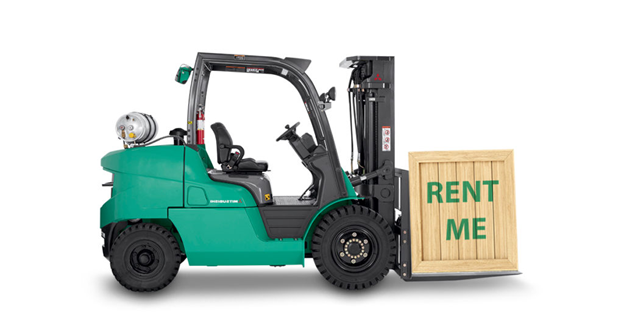Renting a forklift can be a practical and cost-effective solution for businesses that require temporary access to this essential piece of equipment.
Forklifts play a crucial role in material handling and warehouse operations, and renting one can offer flexibility and financial advantages.
In this article, we will delve into everything you need to know about renting a forklift.
1. Types of Forklifts
Before renting a forklift, it’s essential to understand the different types available to meet your specific needs.
Counterbalance forklifts are the most common type and are suitable for indoor and outdoor use. Reach forklifts are designed for narrow aisles and high stacking, making them ideal for warehouse operations.
Other types include pallet jacks, rough terrain forklifts, and order pickers. Assess your requirements and choose the type that best suits your application.
When considering forklift rental options, it’s worthwhile to explore reputable brands such as MLA Holdings, known for their commitment to quality and reliability in material handling equipment.
2. Capacity and Lift Height
Forklifts come in various capacities and lift heights. The capacity refers to the maximum weight a forklift can lift, and it’s crucial to choose one that can handle your typical loads.
Lift height is equally important, especially if you need to stack items vertically. Understanding the weight and height requirements of your tasks will help you select the right forklift for your job.
3. Duration of Rental
One of the primary benefits of renting a forklift is the flexibility it offers in terms of rental duration.
Whether you need it for a day, a week, a month, or longer, forklift rental companies can accommodate your specific timeline.
This flexibility is particularly advantageous for businesses with seasonal fluctuations or short-term projects, allowing them to optimize costs without the long-term commitment of purchasing a forklift.
4. Cost Considerations
The cost of renting a forklift can vary based on several factors, including the type of forklift, its capacity, rental duration, and any additional features or attachments required.
It’s crucial to obtain detailed quotes from multiple rental providers, ensuring you understand all associated costs.
Some companies may charge extra for delivery, pickup, or maintenance, so inquire about any hidden fees before finalizing your rental agreement.
5. Operator Training
Operating a forklift requires specific skills and training to ensure safety and efficiency. Before renting a forklift, consider whether your staff is trained to operate the specific type of forklift you plan to rent.
Many forklift rental companies offer training programs to familiarize operators with the equipment.
Ensuring that your team is well-trained not only enhances safety but also minimizes the risk of damage to the forklift and the goods being handled.
6. Maintenance and Support
When renting a forklift, inquire about the maintenance and support provided by the rental company. Well-maintained forklifts are essential for optimal performance and safety.
Understand the rental company’s policies regarding regular maintenance, emergency repairs, and replacement equipment in case of breakdowns.
A reliable rental partner should offer comprehensive support to minimize downtime and keep your operations running smoothly.
7. Insurance Coverage
Accidents can happen, even with the most experienced operators. It’s crucial to discuss insurance coverage with the forklift rental provider.
Find out what is included in the rental agreement and whether additional insurance options are available.
Adequate insurance coverage protects your business from potential liabilities in case of slip and fall accidents, damage, or theft during the rental period.
8. Environmental Considerations
If your operations involve outdoor tasks or rough terrains, consider the environmental conditions when renting a forklift.
Rough terrain forklifts are specifically designed for uneven surfaces and challenging outdoor environments.
Communicate your working conditions to the rental provider so they can recommend the most suitable forklift for your needs.
9. Delivery and Pickup Logistics
Coordinate with the forklift rental company regarding the logistics of delivery and pickup. Provide detailed information about your location, including any potential obstacles or access restrictions.
Ensure that the rental company has the necessary equipment and expertise to transport the forklift to and from your site safely.
In conclusion, renting a forklift can be a practical solution for businesses in need of flexible material handling equipment.
By understanding the different types of forklifts, assessing your specific requirements, considering costs, ensuring operator training, and addressing logistical and maintenance aspects, you can make informed decisions when renting a forklift for your business operations.

